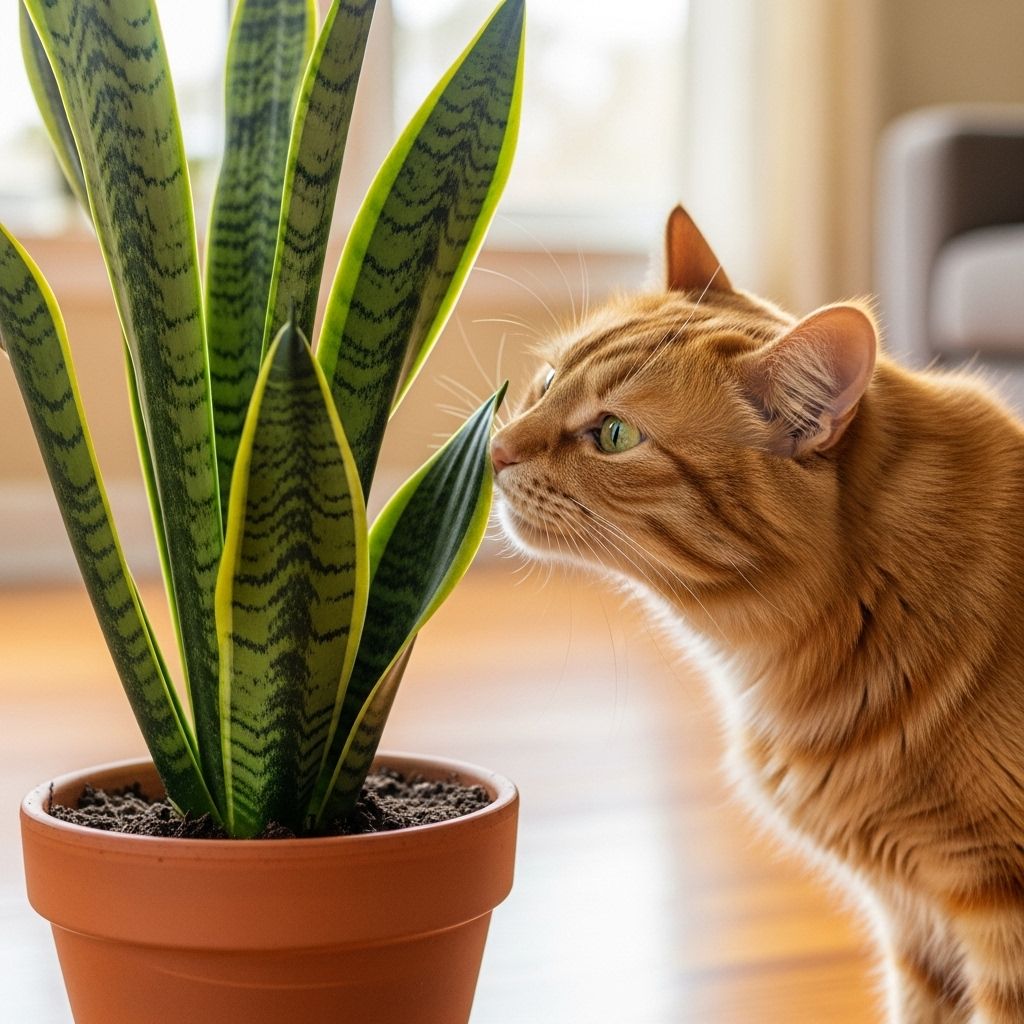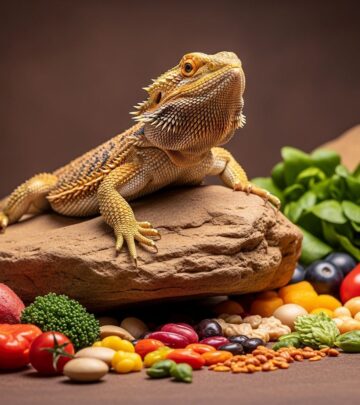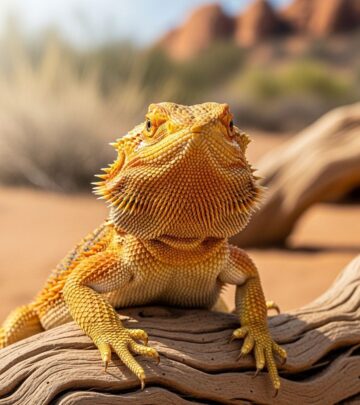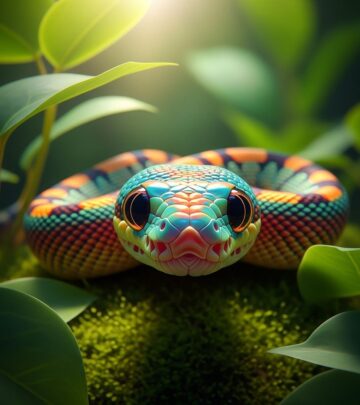Are Snake Plants Toxic to Cats? Essential Safety Guide for Pet Owners
Help your feline friend stay healthy by spotting hidden risks in indoor greenery.

Are Snake Plants Toxic to Cats? Essential Safety Guide
Snake plants (Sansevieria trifasciata), also known as mother-in-law’s tongue or golden bird’s nest, are some of the most widespread houseplants found in homes worldwide. Valued for their hardiness and air-purifying qualities, these low-maintenance plants are a popular decor choice. However, households with cats need to be aware: all parts of snake plants contain compounds that can be toxic to felines. This guide covers the science behind snake plant toxicity, symptoms of poisoning in cats, what to do if your pet ingests part of this plant, and how to keep your pets safe.
Why Are Snake Plants Toxic to Cats?
Snake plants contain naturally occurring chemicals called saponins. These compounds serve as the plant’s defense mechanism against herbivores, insects, and fungi. Unfortunately, saponins are toxic to household pets, including cats and dogs. All parts of the plant contain saponins, but most exposures occur from cats chewing on the plant’s stiff, upright leaves.
- Saponins disrupt cell membranes, leading to irritation of the mucous membranes and gastrointestinal tract in cats.
- This can result in a range of symptoms, usually mild but sometimes severe if large quantities are eaten.
- The plant’s mild toxicity rarely causes life-threatening effects but should never be overlooked.
Symptoms of Snake Plant Poisoning in Cats
If your cat nibbles on a snake plant, you may observe a variety of clinical symptoms. While the effects are typically mild to moderate, the intensity can vary depending on the amount consumed and the individual cat’s health and sensitivity.
- Nausea
- Vomiting (sometimes repeatedly)
- Diarrhea
- Lethargy
- Excessive drooling
- Loss of appetite
- Swelling in the mouth or throat
- Abdominal pain or discomfort
- Dilated pupils and pale gums (less common but possible)
Symptoms can manifest within a few minutes to several hours post-ingestion. Most cats experience only short-term gastrointestinal upset, but in rare cases, severe vomiting or diarrhea may lead to dehydration and require veterinary intervention.
Is Snake Plant Poisoning Fatal to Cats?
Fortunately, snake plant toxicity in cats is not usually fatal. The saponins typically cause mild gastrointestinal irritation. Severe poisoning or life-threatening reactions are rare and usually result from consuming large amounts, or in vulnerable pets like kittens or cats with underlying conditions.
Prompt response and supportive veterinary care can prevent complications resulting from ongoing symptoms, such as dehydration from continual vomiting or diarrhea.
What to Do If Your Cat Eats a Snake Plant
If you suspect or witness your cat chewing on a snake plant, follow these steps:
- Remove the plant from your cat’s reach immediately to prevent additional ingestion.
- Monitor symptoms: Watch your cat closely for nausea, vomiting, diarrhea, or any of the symptoms listed above.
- Contact your veterinarian promptly if symptoms are severe or persistent.
- Consider calling an animal poison control helpline (such as the ASPCA Animal Poison Control Center or the Pet Poison Helpline) for immediate expert guidance.
- Do not attempt to induce vomiting or treat your cat with home remedies unless directed by a veterinarian.
Diagnosing and Treating Snake Plant Poisoning
Since the symptoms of snake plant toxicity, such as vomiting or diarrhea, are non-specific and could have multiple causes, let your veterinarian know if your cat has had access to a snake plant. Diagnosis typically involves:
- Taking a detailed history of exposure and symptom development.
- A physical examination to check for oral irritation, dehydration, and other clinical signs.
- In severe or prolonged cases, blood tests to evaluate organ function and rule out other illnesses.
Treatment is generally supportive and depends on the nature and severity of symptoms. It may include:
- Activated charcoal or medications to bind and reduce absorption of the toxin if identified right away.
- Fluid therapy to address dehydration.
- Anti-nausea and anti-diarrheal medications prescribed by the veterinarian.
- Close monitoring and, if necessary, hospitalization for severe or ongoing cases.
Preventing Snake Plant Poisoning in Cats
The best way to protect your cats is to avoid bringing snake plants into homes with cats, or keep them in areas that are absolutely inaccessible to your pets. Here are some practical strategies:
- Choose pet-safe houseplants: Opt for cat-safe alternatives such as spider plants, areca palms, or Boston ferns.
- Place plants out of reach: Hang plants high and use secure shelves if avoidance is not possible, but remember that many cats are skilled climbers.
- Discourage chewing behavior: Provide cat grasses, catnip, and interactive toys to redirect your cat’s natural curiosity and need to chew.
- Educate household members and guests about the risks of toxic plants around pets.
Cat-Safe Houseplants and Alternatives
If you enjoy indoor greenery but want to keep your cat safe, consider these non-toxic houseplants for a safer indoor garden:
- Spider Plant (Chlorophytum comosum): Non-toxic and easy to grow.
- Areca Palm (Dypsis lutescens): Safe for cats and adds a tropical vibe.
- Boston Fern (Nephrolepis exaltata): Lush, pet-friendly greenery.
- Calathea: Low-maintenance and safe for feline companions.
- Parlor Palm (Chamaedorea elegans): Another attractive and safe option.
Frequently Asked Questions (FAQs)
Are snake plants toxic to cats?
Yes. Snake plants contain saponins, which are toxic to cats. Even small bites can lead to gastrointestinal upset. Remove the plant or restrict your cat’s access to it to prevent contact.
What should I do if my cat eats a snake plant?
Remove the plant from your pet’s reach immediately and monitor your cat for symptoms like drooling, vomiting, and diarrhea. Contact your veterinarian or a pet poison helpline for further guidance.
How severe is snake plant toxicity in cats?
While most cases result in mild to moderate symptoms, some cats may experience more significant distress. Severe or persistent symptoms, especially vomiting or diarrhea, warrant prompt veterinary evaluation. Fatalities are extremely rare.
Can snake plant toxicity be treated at home?
Mild symptoms such as short-term vomiting may resolve on their own, but any more serious or ongoing symptoms require professional veterinary attention. Home remedies are not recommended unless directed by a veterinarian.
Are any houseplants safe for cats?
Yes. Several plants, including spider plants, Boston ferns, and areca palms, are considered non-toxic and safe for cats. Always confirm the safety of a plant before bringing it into a pet-friendly home.
Can snake plants be kept around dogs and other pets?
Snake plants are also mildly toxic to dogs and some other common household pets due to their saponin content. The safety precautions and symptoms are generally similar to those for cats.
How can I discourage my cat from chewing on plants?
Provide cat grasses or safe greens for your cat to chew, offer a variety of engaging toys, and consider the use of bitter sprays (if verified safe) to deter plant chewing. Ensuring your cat’s environment is rich in stimulation can reduce the temptation to nibble on houseplants.
Toxic vs. Cat-Safe Houseplants: At a Glance
| Plant Name | Toxicity to Cats | Main Toxin (if any) |
|---|---|---|
| Snake Plant (Sansevieria trifasciata) | Toxic | Saponins |
| Spider Plant (Chlorophytum comosum) | Non-toxic | — |
| Boston Fern (Nephrolepis exaltata) | Non-toxic | — |
| Lily (Lilium spp.) | Highly toxic | Various, unknown |
| Golden Pothos (Epipremnum aureum) | Toxic | Insoluble Calcium Oxalates |
| Areca Palm (Dypsis lutescens) | Non-toxic | — |
Key Takeaways
- Snake plants are mildly to moderately toxic to cats due to saponins present in all plant parts.
- Common signs of toxicity include drooling, vomiting, diarrhea, lethargy, and oral swelling.
- Life-threatening reactions are rare; most cases resolve with basic supportive care but persistent symptoms should always be evaluated by a veterinarian.
- Keep snake plants out of homes with cats, or at the very least, ensure they are physically out of reach. Replace them with pet-safe alternatives.
- Consult your vet or a pet poison helpline if you suspect your cat has ingested any part of a snake plant.
Resources and Helplines
- ASPCA Animal Poison Control Center: 1-888-426-4435
- Pet Poison Helpline: 1-855-764-7661
- Contact your local veterinarian for area-specific emergency pet care.
References
- https://basepaws.com/blog/are-snake-plants-toxic-to-cats
- https://www.livelyroot.com/blogs/plant-care/snake-plants-toxicity-to-pets
- https://www.kinship.com/cat-health/are-snake-plants-toxic-for-cats
- https://animals.howstuffworks.com/pets/are-snake-plants-toxic-to-cats.htm
- https://www.aspca.org/pet-care/animal-poison-control/toxic-and-non-toxic-plants/snake-plant
- https://wagwalking.com/cat/condition/snake-plant-poisoning
Read full bio of Sneha Tete












